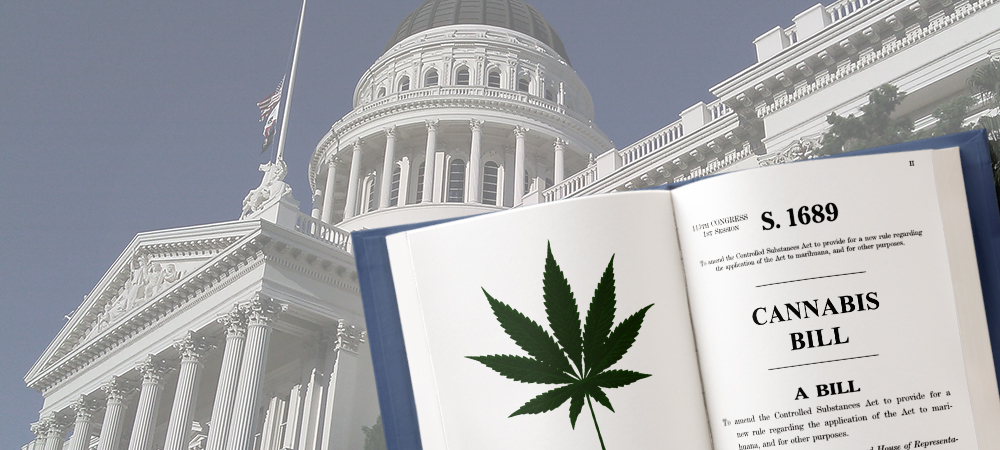San Diego Crypto Currency Trader Indicted And Held Without Bond In The U.S. For Money Laundering
/0 Comments/in Criminal Tax Enforcement, Criminal Tax Litigation – Domestic Tax Issues, Crypto-currency / Bitcoin, IRS Criminal Investigation Division Operation & Developments – Domestic Tax Issues/by Tax AttorneyDo not think that just because digital exchanges are not broker-regulated by the IRS and digital exchanges are not obligated to issue a 1099 form reporting transactions, that your crypto currency transactions will always be a secret. The Federal government is cracking down on non-compliant traders.
Charges Filed Following Investigation By Federal Authorities
The U.S. Attorney’s Office for the Southern District Of California (which serves San Diego) announced on August 17, 2018 in a press release that a bitcoin dealer, Jacob Burrell a/k/a Jacob Burrell Campos, was indicted for international money laundering and is being held without bond. Mr. Burrell was arrested on August 13, 2018 as he tried to enter the United States from Mexico at the Otay Mesa Port of Entry.
According to statements made in court by Assistant U.S. Attorney Robert Ciaffa in the August 17th bond hearing, Mr. Burrell was a prolific Bitcoin dealer who sold approximately $750,000 worth of Bitcoin to hundreds of buyers throughout the United States. He conducted 971 separate transactions with over 900 individual customers, and accepted cash in person, through his bank accounts, and through MoneyGram. AUSA Ciaffa told the court that Mr. Burrell operated as a Bitcoin “exchanger” and his activities constituted a “money transmitting business”. As such, he was required to register with the Department of Treasury, and comply with all anti-money laundering requirements, including reporting suspicious cash transactions. In this case, Mr. Burrell accepted cash “with no questions asked” and in return for a 5% fee, supplied hundreds of individuals with an easy outlet to avoid the anti-money laundering laws applicable to all financial institutions, including licensed and registered Bitcoin exchanges. According to AUSA Ciaffa, Mr. Burrell’s activities “blew a giant hole” through the legal framework of U.S. anti-money laundering laws by soliciting and introducing into the U.S. banking system close to $1 million in unregulated cash.
18 U.S.C. §1956 – Laundering Of Monetary Instruments
18 U.S.C. § 1956(a) defines three types of criminal conduct: domestic money laundering transactions (§ 1956(a)(1)); international money laundering transactions (§ 1956(a)(2)); and undercover “sting” money laundering transactions (§ 1956(a)(3)). Crypto currency traders and marijuana-related businesses need to be aware of domestic money laundering transactions (§ 1956(a)(1)).
To be criminally culpable under 18 U.S.C. § 1956(a)(1), a defendant must conduct or attempt to conduct a financial transaction, knowing that the property involved in the financial transaction represents the proceeds of some unlawful activity, and the property must in fact be derived from a specified unlawful activity.
Violations of § 1956 have a maximum potential 20-year prison sentence and a $500,000 fine or twice the amount involved in the transaction, whichever is greater. There is also a civil penalty provision in § 1956(b) which may be pursued as a civil cause of action. Under this provision, persons who engage in violations of any of the subsections of 1956(a) are liable to the United States for a civil penalty of not more than the greater of $10,000 or the value of the funds involved in the transaction.
Mr. Burrell is being charged with 28 counts of money laundering. Each conviction for money laundering carries a maximum penalty of 20 years in prison and/or a $500,000 fine or twice the amount involved in the transaction, whichever is greater.
Other charges and possible punishment in the indictment include:
- Conducting an unlicensed money transmitting business, in violation of 18 USC 1960. Statutory maximum: Five years in prison, $250,000 fine.
- Failing to maintain an anti-money laundering program, in violation of 18 USC 5318(h), 5322(b). Statutory maximum: Ten years in prison, $500,000 fine.
- Conspiracy to structure international instrument transactions, in violation of 18 USC 371 and 31 USC 5324(c)(3). Statutory maximum: Five years in prison, $250,000 fine.
Indictment Culminated Investigation By Multiple Federal Agencies
The Department Of Homeland Security (Homeland Security Investigation Unit), Postal Inspection Service and the Internal Revenue Service investigated this case.
U.S. Magistrate Judge Karen S. Crawford found that Mr. Burrell had significant ties to Mexico, citizenship in three countries, no steady employment in the United States, the ability to access large sums of cash, and a disdain and unwillingness to comply with U.S. laws. She concluded at the August 17th bond hearing that Mr. Burrell posed a substantial risk of flight, and ordered him held without bail.
Keep in mind that the charges and allegations by U.S. Attorneys’ Office are merely accusations and the defendant is considered innocent unless and until proven guilty. However, regardless of the outcome of this indictment you can bet that Mr. Burrell will likely have to face the Civil Division of the Internal Revenue Service.
What Should You Do?
The IRS is always interested in teaming up with other Federal agencies in their investigations of non-compliance with the laws and with only several hundred people reporting their crypto gains each year, the IRS suspects that many crypto users have been evading taxes by not reporting crypto transactions on their tax returns. Don’t delay because once the IRS has targeted you for investigation – even if it is a routine random audit – it will be too late voluntarily come forward. Let the tax attorneys at the Law Offices Of Jeffrey B. Kahn, P.C. located in Orange County (Irvine), San Francisco Bay Area (including San Jose and Walnut Creek) and offices elsewhere in California get you set up with a plan that may include being qualified into a voluntary disclosure program to avoid criminal prosecution, seek abatement of penalties, and minimize your tax liability.
Got IRS Debt? Know When It’s Really The IRS Contacting You.
/0 Comments/in IRS Operations & Procedures/by Tax AttorneyFrom time to time the IRS issues consumer warnings on the fraudulent use of the IRS name or logo by scammers trying to gain access to taxpayers’ financial information in order to steal their identity and assets so everyone should know how the IRS contacts taxpayers.
Suspicious e-Mail/Phishing
When identity theft takes place over the Internet, it is called phishing. Phishing (as in “fishing for information” and “hooking” victims) is a scam where Internet fraudsters send e-mail messages to trick unsuspecting victims into revealing personal and financial information that can be used to steal the victims’ identity. Current scams include phony e-mails which claim to come from the IRS and which lure the victims into the scam by telling them that they are due a tax refund.
Key Facts About How The IRS Communicates With Taxpayers:
- The IRS does not normally initiate contact with taxpayers by email.
- The IRS does not send text messages or contact people through social media.
- When the IRS needs to contact a taxpayer, the first contact is normally by letter delivered by the U.S. Postal Service. Fraudsters will send fake documents through the mail, and in some cases will claim they already notified a taxpayer by U.S. mail.
- Depending on the situation, IRS employees may first call or visit with a taxpayer. In most instances, the IRS sends a letter or written notice to a taxpayer in advance.
- IRS revenue agents or tax compliance officers may call a taxpayer or tax professional after mailing a notice to confirm an appointment or to discuss items for a scheduled audit.
- IRS has contracted with selected private debt collectors who can call taxpayers for the collection of certain outstanding inactive tax liabilities, but only after the taxpayer and their representative have received written notice.
- IRS revenue officers and agents routinely make unannounced visits to a taxpayer’s home or place of business to discuss taxes owed, delinquent tax returns or a business falling behind on payroll tax deposits. IRS revenue officers will request payment of taxes owed by the taxpayer. However, taxpayers should remember that payment will never be requested to a source other than the U.S. Treasury.
- When visited by someone from the IRS, taxpayers should always ask for credentials. IRS representatives can always provide two forms of official credentials: a pocket commission and an IRS Personal Identity Verification Credential.
Contacting IRS To Report Fraudulent Scams
Taxpayers who receive the IRS phone scam or any IRS impersonation scam should report it to the Treasury Inspector General for Tax Administration at its IRS Impersonation Scam Reporting site and to the IRS by emailing phishing@irs.gov with the subject line “IRS Impersonation Scam.”
What You Should Do If You Really Do Have Tax Issues?
The tax attorneys of the Law Offices Of Jeffrey B. Kahn, P.C. located in Orange County (Irvine), San Francisco Bay Area (including San Jose and Walnut Creek) and elsewhere in California know exactly what to say and how to handle issues with the IRS as well as State Tax Agencies. Our experience and expertise not only levels the playing field but also puts you in the driver’s seat as we take full control of resolving your tax problems.
IRS Targeting Taxpayers With Unreported Foreign Income And Undisclosed Foreign Bank Accounts
/0 Comments/in Audits, Criminal Tax Enforcement, Disclosures of Foreign Income Producing Property, Disclosures of Foreign Trusts and Interests In Foreign Entities, FBAR, Foreign Accounts - Tax Information Sharing, Foreign Accounts – IRS Operations & Investigation Developments, IRS Criminal Investigation Division Operation & Developments – Domestic Tax Issues, IRS Operations & Procedures, Offshore Voluntary Disclosure Program (OVDP), Undisclosed Foreign Bank Accounts & Unreported Foreign Income/by Tax AttorneyLos Angeles Crypto Currency Trader Convicted For Money Laundering And Sentenced To One Year In Prison
/0 Comments/in Criminal Tax Enforcement, Criminal Tax Litigation – Domestic Tax Issues, Crypto-currency / Bitcoin, IRS Criminal Investigation Division Operation & Developments – Domestic Tax Issues/by Tax AttorneyDarknet Narcotics Vendors Selling to Thousands of U.S. Residents Accused Of Tax Crimes
/0 Comments/in Criminal Tax Enforcement, Criminal Tax Litigation – Domestic Tax Issues, IRS Criminal Investigation Division Operation & Developments – Domestic Tax Issues, Marijuana Tax Planning & Marijuana Tax Defense/by Tax AttorneyIRS Crackdown On Taxpayers Earning Income In The Sharing Economy
/0 Comments/in Audits, IRS Operations & Procedures, Tax Audits & Appeals, Tax Deductible, Tax Planning/by Tax AttorneyAustralia Follows The IRS Targeting Tax Evading Crypto Traders
/0 Comments/in Crypto-currency / Bitcoin, IRS Criminal Investigation Division Operation & Developments – Domestic Tax Issues, IRS Operations & Procedures/by Tax AttorneyFederal Senators Introduce Cannabis Legalization Bills – If You Can’t Beat Them, Then Join Them!
/0 Comments/in California Marijuana Licensing, Marijuana Tax Planning & Marijuana Tax Defense/by Tax AttorneyEpidiolex: FDA approves another cannabis-derived prescription medicine
/0 Comments/in California Marijuana Licensing, Marijuana Tax Planning & Marijuana Tax Defense/by Tax AttorneyKeep In Touch
MEET US IN PERSON
Services
- Abatement of Tax Penalties
- Audits And Tax Court
- Business Transactions
- Cannabis / Marijuana Tax Services
- Criminal Tax Investigations
- Crypto-currency / Bitcoin – Tax Representation Services
- Currently Not Collectible
- Delinquent Tax Returns
- Employment And Payroll Taxes
- Entity Formations
- Estate Planning
- Estate Planning For Non US Citizens
- Estate Tax Planning
- FATCA | Foreign Account Reporting Compliance
- FBAR | Foreign Bank Account Reporting
- Full Pay Service
- Income Tax Planning
- Innocent Spouse Claims
- IRS & State Tax Controversies
- IRS Offshore Tax Investigations
- IRS Offshore Tax Investigations
- IRS State Tax Controversies
- Offers In Compromise
- Payment Agreements
- Representation Of Tax Preparers And Other Tax Professionals
- Revenue Officer Assistance
- Tax & Estate Plannng
- Tax Liens And Levies
- Wage Garnishment










 Follow
Follow Follow
Follow